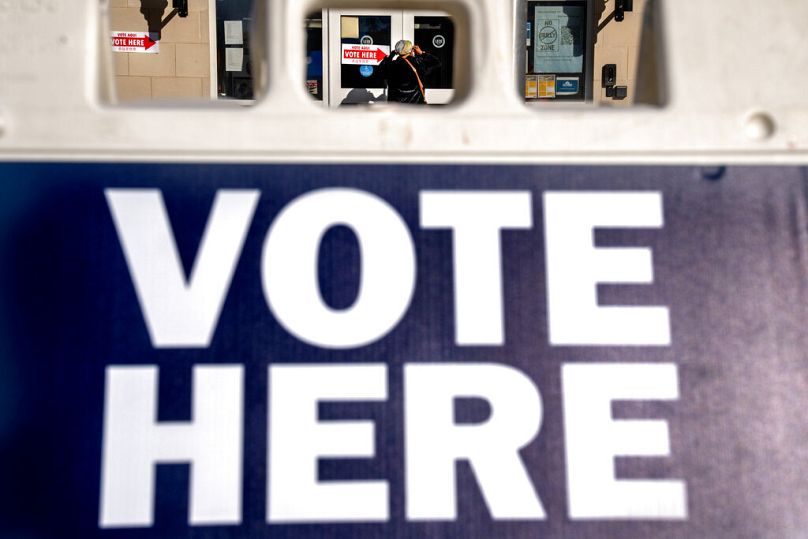Control of the US Congress hung in the balance " />
US elections: Republican hopes of taking control of Congress hang in the balance
Control of the US Congress hung in the balance early Wednesday, with both Republicans and Democrats notching victories in some of the most competitive races in a midterm election.

Republican candidate supporters cheer on the latest voting results for Kari Lake, at the Republican watch party
in Scottsdale, Ariz., Tuesday, Nov. 8, 2022. – Copyright AP Photo/Ross D. Franklin
US elections: Republican hopes of taking control of Congress hang in the balance
Control of the US Congress hung in the balance early Wednesday, with both Republicans and Democrats notching victories in some of the most competitive races in a midterm election.

Republican candidate supporters cheer on the latest voting results for Kari Lake, at the Republican watch party
in Scottsdale, Ariz., Tuesday, Nov. 8, 2022. – Copyright AP Photo/Ross D. Franklin
in Scottsdale, Ariz., Tuesday, Nov. 8, 2022. – Copyright AP Photo/Ross D. Franklin
